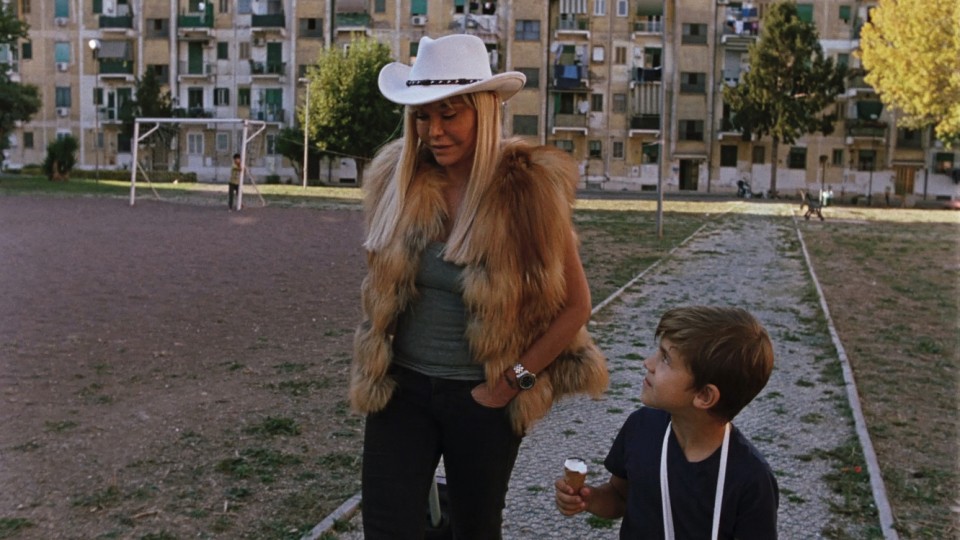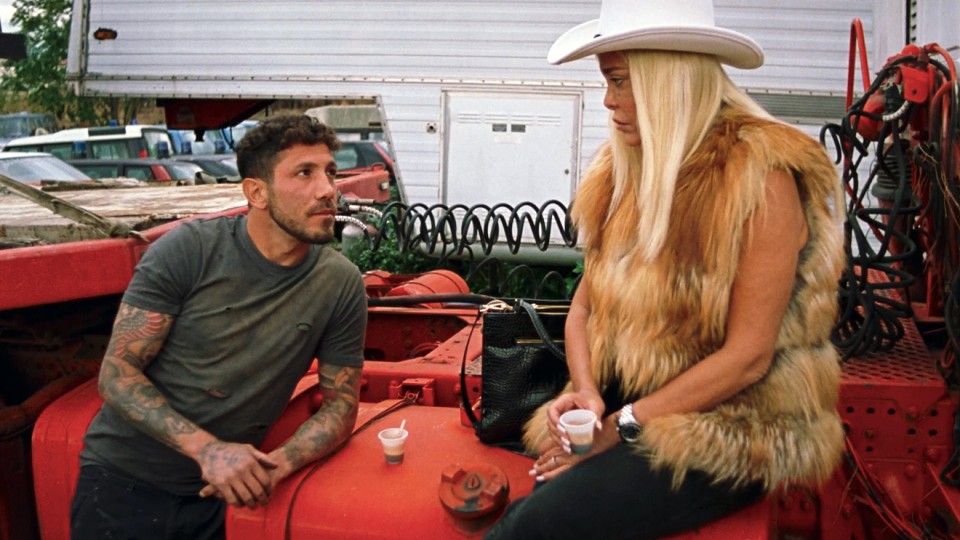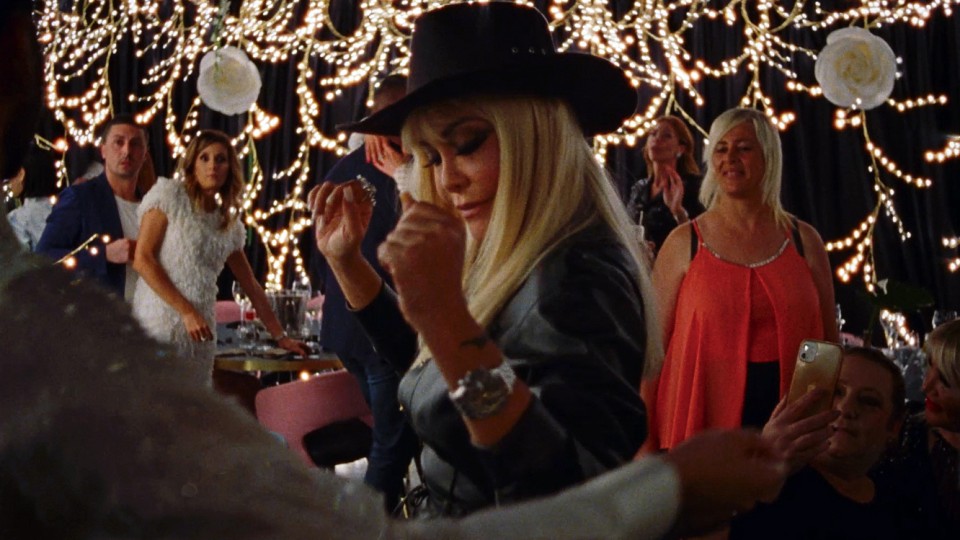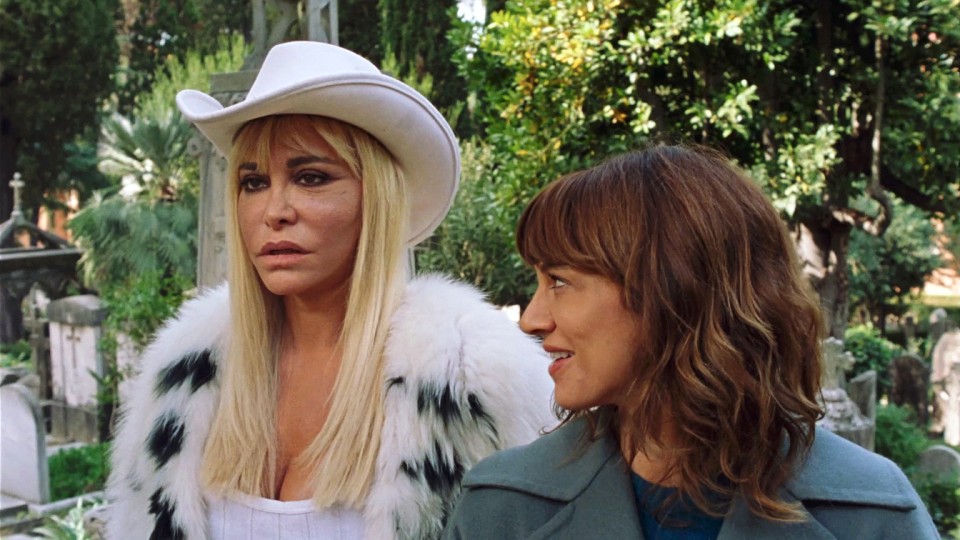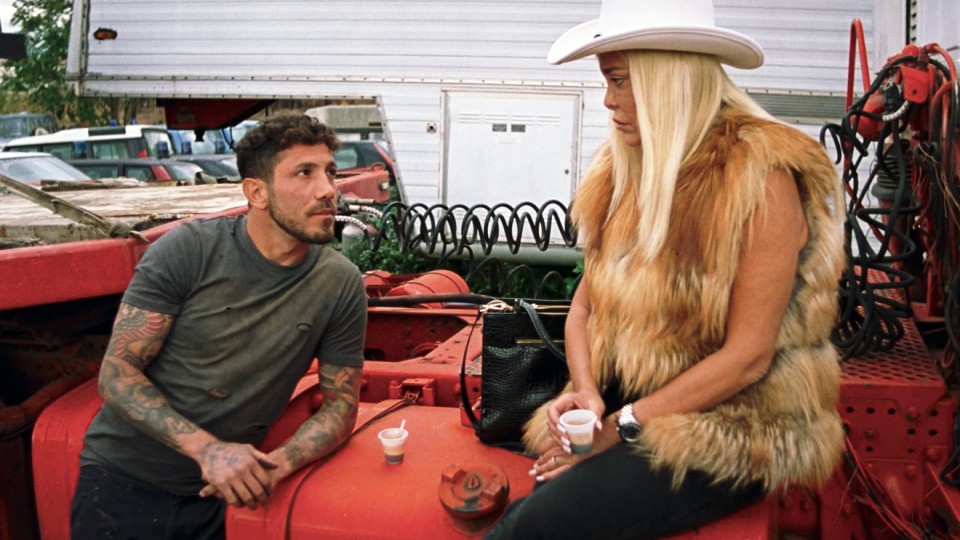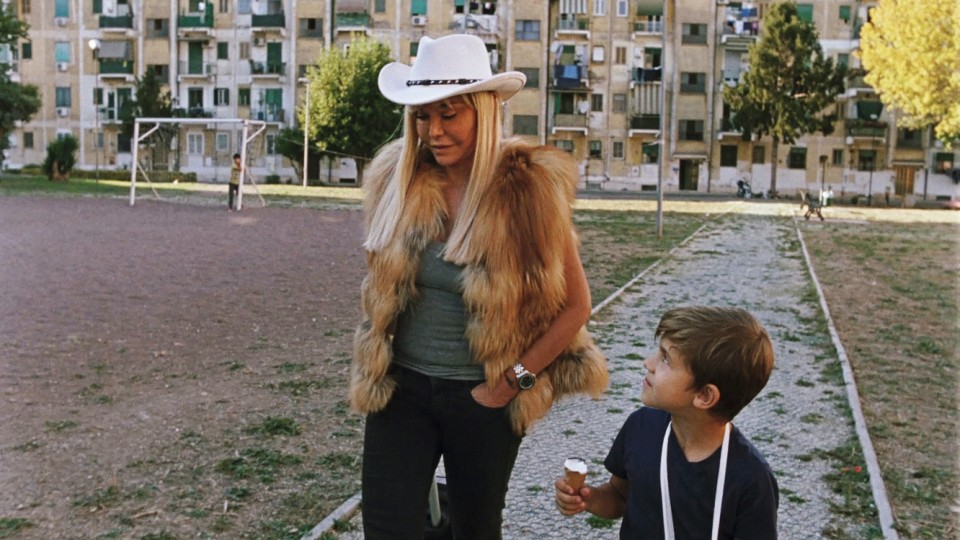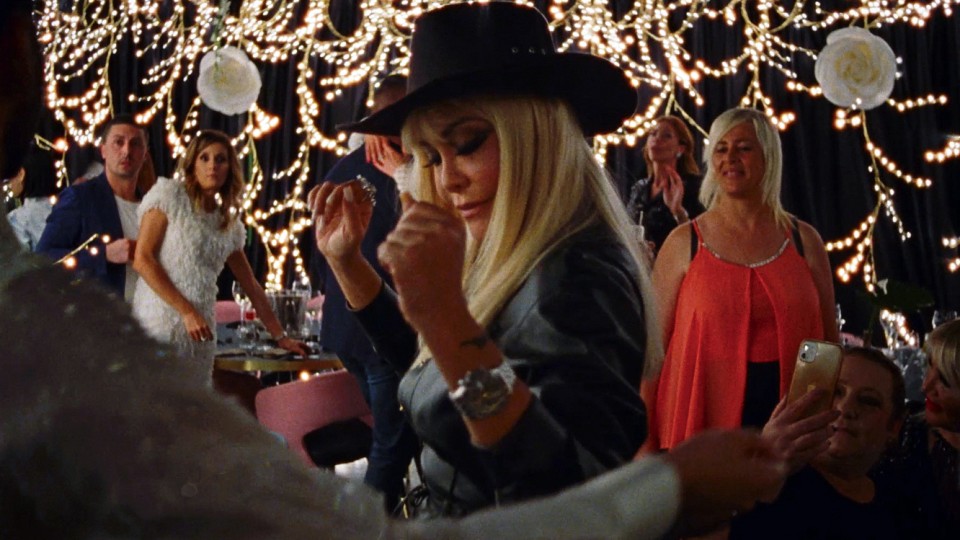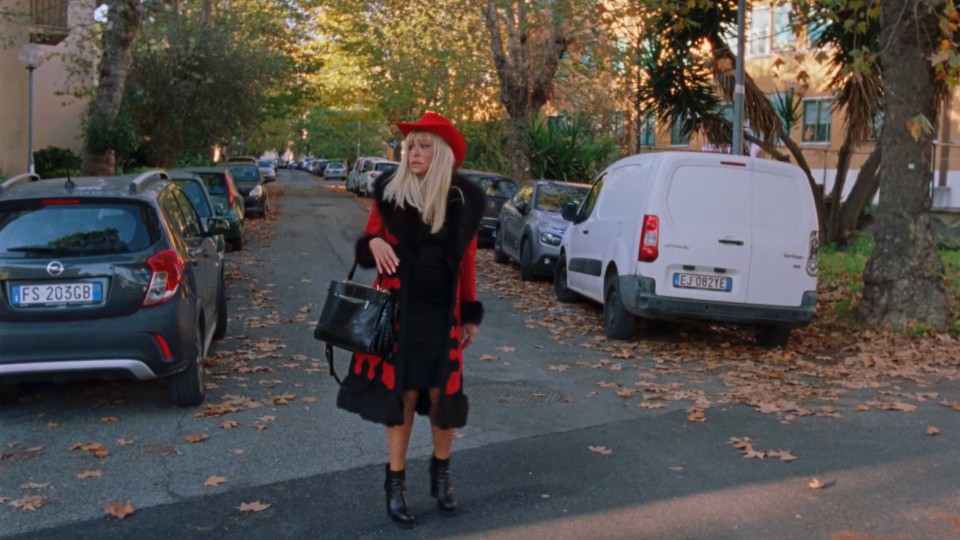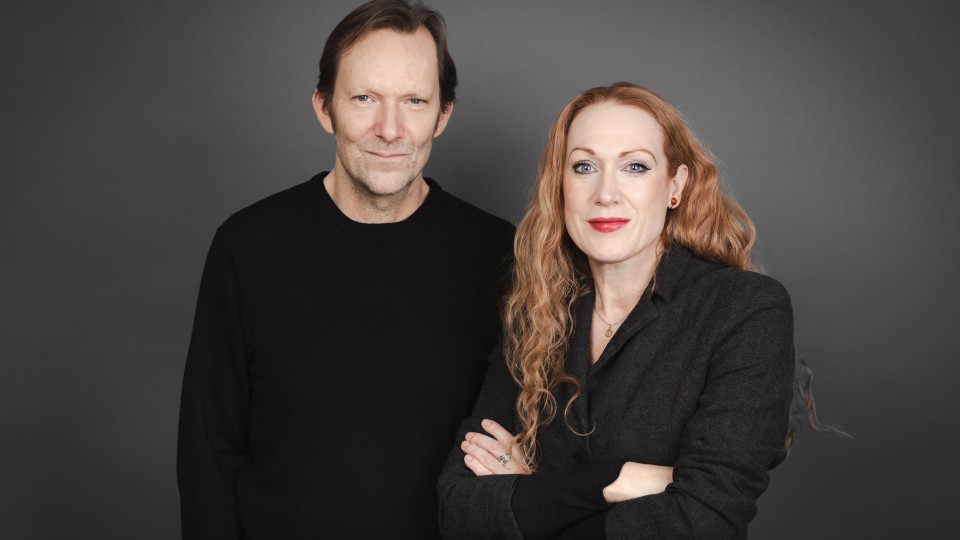Vera's father Giuliano Gemma is an Italian screen legend. He bestowed upon his daughters a childhood of glitz and glamour
– but also the burden of fame. In Tizza Covi and Rainer Frimmel's new film VERA the protagonist is involved in a minor car accident in a suburb of Rome, and this brings about a collision between two contrasting
realities of the city. Good-natured, generous and unworldly, Vera navigates these two worlds full of ambushes and traps
and
despite all her doubts, she remains unwaveringly at one with herself.
VERA focuses on a character who has experienced the glamour and glitz of Italian cinema in a certain era. Who is your protagonist,
Vera?
TIZZA COVI: We met Vera Gemma in 2015 while we were shooting our film Mister Universo; she was working on a documentary about circus artists, in honor of her late father Giuliano Gemma, a very popular actor
in Italy. When she was introduced to us, I found her very strange, and we only exchanged a few words.
Why didn't she interest you at first?
TIZZA COVI: I've never been interested in the world she portrays at first glance: her openly flaunted wealth with chic branded clothes
and matching handbags, her artificially preserved youthfulness, her tendency to photograph herself anytime and anywhere to
post later. They are actually all things that I always mercilessly condemn. Two weeks later we sat next to her at a dinner,
and we had a wonderful conversation, because she has a very critical and ruthlessly honest way of calling a spade a spade.
That was a good lesson, confirming yet again that it’s always necessary to look beyond the surface. I succumbed to her fascination
very quickly, visited her quite often in Rome, read her autobiography and watched her father's films. One day I told her I’d
like to write a script about her.
How did Vera react to that?
TIZZA COVI: I think at first she wasn't entirely convinced that I would really pull it off. She’s all too familiar with show business
and knows very well that lots of promises are made but not many are kept in the end.
But I refused to be discouraged from working on this project, because both Rainer and I were convinced she would be a perfect
leading actress. She isn’t easy to classify, she’s very capable of taking a step back, and she manages with the minimum of
gestures; furthermore, it is easy for her to improvise and empathize with every situation. She never complained about anything
during the shoot, except maybe about the time pressure, because we usually had to shoot six days a week since the next lockdown
was just around the corner.
After the circus, theatre and music, this time it is cinema itself that provides the context for your work. Was it one of
your aims to explore the tension between the world of cinema, as a world of appearances, and your cinematic search for veracity?
TIZZA COVI: This element of tension really fascinated us, and Vera provided us with a lot of material about the glamorous aspect of cinema.
There are delicious stories about Vera with Sergio Leone and with Pier Paolo Pasolini; for a long time she was together with
Franco Citti, who plays the lead role in Mamma Roma and Accatone. Unfortunately, a lot of this was lost in editing, because
in order to let Vera shine it wasn’t necessary to emphasize that all the great personalities of Italian cinema had a natural
place in her life.
Of course, there’s a stark contrast between our way of making films and all this, because we still work with two people on
set, or three at the most, and we still try to get closer to a human truth than a dramaturgical one.
VERA is also a tribute to the medium of film itself.
TIZZA COVI: Rome is still a cinema city. You see it on every street corner – whether it be people who worked as extras for Fellini or
places you recognize as locations from films by De Sica or Antonioni. You can't escape cinema in Rome.
One major theme of VERA is beauty.
TIZZA COVI: The question of what beauty really consists of is probably as old as humanity itself. For us, it answers itself quite simply:
a beautiful person is someone who is genuinely engaged with life on earth and thus builds up an unmistakable personality.
In the film business, beauty is defined differently, and this creates an absolutely hopeless dilemma, for actresses in particular
when they get older: if they don’t have surgery, the good roles become rare – but if they do resort to surgery and it’s apparent,
they are despised for it. Whatever they do is wrong. Vera herself has long suffered from the fact that ever since early childhood
she has never conformed to the usual ideal of beauty.
RAINER FRIMMEL: However, we’re talking about relative age here. With Vera, the belief that she was losing her beauty started early on.
TIZZA COVI: Vera's story is shaped by the constant, unbearable comparisons with her famous, beautiful father. It must have been terrible
to hear again and again what a pity it is that the daughter isn’t as beautiful as the father.
It is one of the main themes in VERA: her constant doubts, and the feeling that she has made less of herself than her father
did. On top of which is the fact that she is constantly exploited, because people want to associate themselves with her famous
name. That’s the fate of many children of celebrities.
RAINER FRIMMEL: In terms not only of her beauty but also of her career, her father was a burden. In this respect, it is interesting that Asia
Argento also features in the film and talks about her experience as the daughter of a famous director.
As is often the case in your films, VERA depicts both sides of the coin at the same time. Everything the people of San Basilio
dream of is an obstacle for Vera as she searches for her own identity.
RAINER FRIMMEL: Ultimately, it's about the money they all strive for. For Daniel, the father of the boy with the broken arm, his scams are
a survival strategy.
TIZZA COVI: It is very important for me to emphasize that I didn’t want to portray Daniel as an evil figure in any way. Daniel is in
a very difficult situation; he has hardly any money, he has to take care of his child and his mother, and he’s lost his wife.
He causes harm to someone because he assumes the consequences for them won’t be too serious. We have also given him the space
to show that he is a loving father. It's the ambivalence that makes him an interesting main protagonist.
In the film Gennaro says to Vera: "If I’d had a father like you, it would have opened so many doors for me". Vera replies:
"It meant a huge number of doors were closed for me." To what extent is it also a situation that men and women deal with differently?
TIZZA COVI: It's hard for Vera to escape from the feeling that she doesn’t match up to her father. When I met Gennaro, who is a friend
of Vera and a model, I found it very interesting to see that he has suffered tremendously from being judged only on his outward
appearance. I found it just as interesting that Daniel had to tattoo his inner struggle between good and evil on his body,
to visualize what it looks like inside him. Vera has invented her own beauty through her operations, and her provocative style
of dress is also part of this self-portrayal. That's the way she is, and she stands by it. I find it touching that she says
she finds her ideal of beauty in trans people and would like to look that way.
Vera's body, with all the operations, depicts her life story – as does Gennaro’s perfectly trained body and Daniel’s body
with all the tattoos. How important was the physicality of casting for this film?
TIZZA COVI: Naturally physicality is always an essential factor. We chose Daniel not only because of his tattoos but also because of
the way he moves, gestures and speaks. He has internalized the language and body language of the suburbs, in the daily struggle
for survival as well as in the love for his family. So he could convincingly empathize with everything his character had to
go through.
RAINER FRIMMEL: The other actors you see in the film with Vera come from elements of her world: the agent, the cosmetic surgeon, the hairdresser,
the casting director – it’s all part of her world. But she has always been interested in the other world, because she usually
fell in love with completely destitute men and was interested in their living conditions.
In scenes such as in the pizzeria or with Asia Argento, (popular) songs play an important role. Did working on your last film
Notes from the Underworld sharpen your sensitivity to this kind of music?
TIZZA COVI: In VERA we have once again stuck to the principle that there is only music when it features in the scene, and this time in
the opening and closing titles too. That's a very big innovation. VERA is such an Italian film that it would have been a pity
not to use them. The two traditional songs in the story are indeed a kind of reference to Notes from the Underworld. Whether
it’s Rome, Vienna, Bangkok or New York – every city has its popular culture, which is usually apparent in takes place in the
inn.
RAINER FRIMMEL: Vera encounters a song in the pizzeria that might not come from her world, but it has some immediate link. Some songs are
simply beautiful and can touch us all. The song Vera sings with Asia is also a very popular one. I think it's nice that such
music doesn't adhere to differences between lifestyles; there’s something very unifying about it.
It is also interesting that Vera’s first name is a reference to truth and real life, but the end of VERA is a very ambivalent,
more fictionalized.
TIZZA COVI: As far as fictionalization is concerned, Vera really was once drugged in a hotel room by one of her fiancées and slept through
two nights. During that time her apartment was emptied. When the case came to court, she withdrew all charges. Of course,
we were inspired by this story. At the same time, Vera is now a very different person than she was then, and she’s also different
from the film character she plays. But in our work, reality and fiction always blend so much that ultimately we no longer
know ourselves what is true and what we have invented.
Interview: Karin Schiefer
July 2022
Translation: Charles Osborne

